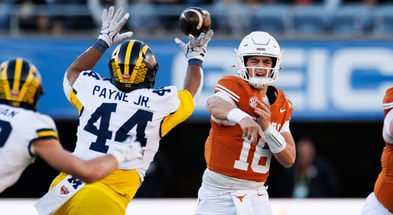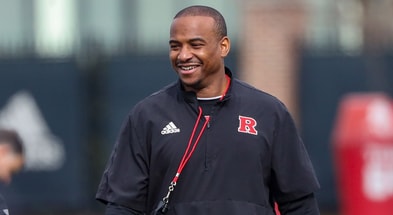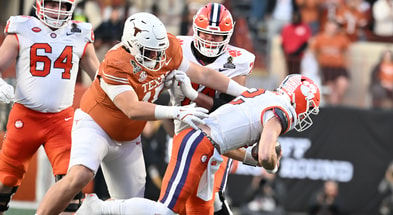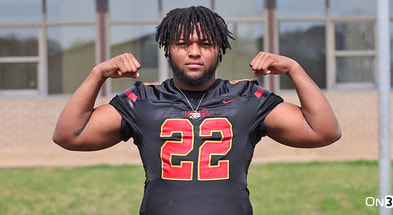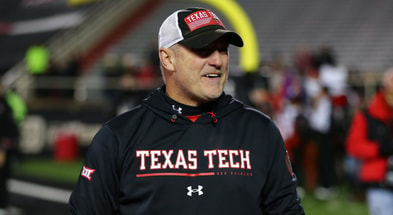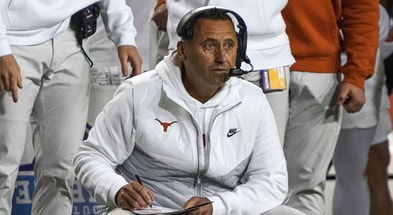Which Texas Longhorns assistant hire since 2000 was the most important?
Texas’ offseason addition of Brennan Marion as wide receivers coach was one of several exciting personnel moves made by Longhorns head coach Steve Sarkisian. Marion, previously at Pittsburgh, brings a combination of recruiting prowess, developmental ability, and schematic know-how that has made him one of the most well-regarded assistant coaches in college football.
[Get four months of Inside Texas Plus for just $1]
His impact won’t be truly known until the games get going in the fall, or until a high school receiver prospect commits to Texas. However, if everything goes well, Marion will likely move up to a coordinator role or even a head coaching position. If he does that, it’s easy to think he’ll have made a positive impact on the Longhorn program, like several other assistants who had short, medium, or long stays in Austin. And assistants who make impacts that alter the direction of the Texas program still receive praise years later.
Since 2000, which assistant coach for programs under the direction of Mack Brown, Charlie Strong, Tom Herman, and Steve Sarkisian have been the most important to Longhorn football program? Bobby Burton, Paul Wadlington, and Joe Cook offer their candidates.
Bobby Burton on Duane Akina: While I think some coordinator moves probably had a greater impact on success (or failure!) in a given year, I believe Mack Brown attracting Duane Akina as secondary coach to his staff was the most impactful coaching move this century. Akina provided 10 years of stability, quality coaching and a team first attitude that played a key role in Texas developing not only into a sustained national power but also a premier destination for defensive backs at a time when throwing offenses in the Big 12 were proliferating at a record rate. Texas had lost the title of DBU in the late 80s and early 90s. With Akina, the Texas lineage of elite DBs each and every year returned. Not only were they all talented, but they were well coached and cohesive for more than a decade under his watch. If you’re looking for a consistent, long-term impact, I think you have to talk about Duane Akina.
Paul Wadlington on Will Muschamp: Despite only three years in Austin, Will Muschamp made a massive impact on the Longhorn football program, improving the No. 42 ranked defense he inherited in 2007 to No. 4 in the country in 2008 in his inaugural campaign, despite introducing a novel system and starting a pair of freshman safeties in his defensive backfield. In 2009, Muschamp developed the best Longhorn defense seen in Austin in more than 25 years. That elite unit finished ranked 3rd in the nation by advanced statistics with the bonus of an amazing six non-offensive touchdowns scored. Despite facing considerable cultural headwinds from an increasingly checked out Mack Brown, his 2010 unit finished ranked No. 29 in the nation despite considerable turnover from his 2009 starters and being saddled with the 94th ranked offense in the country.
Top 10
- 1New
Brendan Sorsby
Latest intel on transfer QB
- 2Trending
Raleek Brown
Coveted transfer sets SEC visit
- 3
Josh Hoover
QB transfers to Big Ten
- 4Hot
Ty Simpson
Evaluating future plans
- 5
Transfer Targets
Big visits on deck
Get the Daily On3 Newsletter in your inbox every morning
By clicking "Subscribe to Newsletter", I agree to On3's Privacy Notice, Terms, and use of my personal information described therein.
Muschamp did much to improve Longhorn locker room culture and program intensity and was also a top notch Xs and Os teacher, but wary of the direction of the Longhorn program and Mack Brown’s willingness to actually retire, the Longhorn coach in waiting left for Gainesville.
Joe Cook on Dick Tomey: 2005 doesn’t happen without 2004, and 2004 doesn’t happen without Dick Tomey. The architect of the “Desert Swarm” defenses at Arizona in the late 1980s and early 1990s, Tomey joined Brown’s program in 2004 as an assistant head coach and defensive ends coach.
He was responsible for a major culture shift in Brown’s program, while also helping Greg Robinson coordinate a defense that ranked No. 23 overall in 2004. He overhauled the strength and conditioning program and convinced Brown to change his practice habits.
Tomey left Austin for a head coaching job after just one season, but what he was able to do in that time was one of many things that helped the program get over the hump and finish No. 1 for the first time in 45 years.

